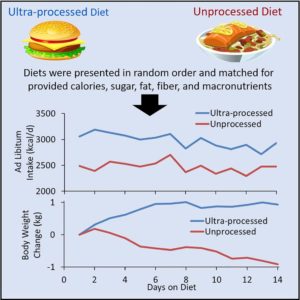 Nearly everyone these days seems to be promoting whole foods over processed foods. Think about how terms like ‘whole grain’, ‘clean eating’, ‘all natural’, ‘functional’ and ‘local’ have taken over the lexicon.
Nearly everyone these days seems to be promoting whole foods over processed foods. Think about how terms like ‘whole grain’, ‘clean eating’, ‘all natural’, ‘functional’ and ‘local’ have taken over the lexicon.
Yet, until now, there has been scant scientific evidence to support the eat-whole-foods movement.
In recent weeks, the British Medical Journal published two new populations studies (study 1; study 2) that found a lower risk of heart disease risks and greater longevity among adults who eat less processed food. And a far more rigorous investigation from the National Institutes of Health (NIH) showed that subjects eating ultra-processed foods consumed significantly more calories and gained more weight than the same subjects when they ate minimally processed or whole foods.
The NIH paper, published in Cell Metabolism in an issue dated August 6, also offered some surprising theories to explain the benefits of minimally processed foods. At the same time, it acknowledged that ultra-processed foods make several important contributions to the nation’s diet.
The NIH research was led by Kevin Hall, a mathematical modeler who has become a global obesity expert in the past decade. Hall […]










